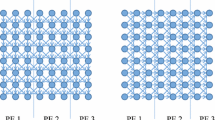Abstract
The paper concerns the problem of efficient distributed execution of fragmented programs in LuNA system, which is a automated parallel programs construction system. In LuNA an application algorithm is represented with a high-level programming language, which makes the representation portable, but also causes the complex problem of automatic construction of an efficient distributed program, which implements the algorithm on given hardware and data. The concept of adding supplementary information (recommendations) is employed to direct the process of program construction based on user knowledge. With this approach the user does not have to program complex distributed logic, while the system makes advantage of the user knowledge to optimize program and its execution. Implementation of this concept within LuNA system is concerned. In particular, a conventional compiler is employed to optimize the generated code. Some performance tests are conducted to compare efficiency of the approach with both previous LuNA release and reference hand-coded MPI implementation performance.
Access this chapter
Tax calculation will be finalised at checkout
Purchases are for personal use only
Similar content being viewed by others
References
ANSYS Fluent Web Page. https://www.ansys.com/products/fluids/ansys-fluent. Accessed 01 Apr 2019
Phillips, J., et al.: Scalable molecular dynamics with NAMD. J. Comput. Chem. 26, 1781–1802 (2005)
MathWorks MATLAB official web-site. https://www.mathworks.com/products/matlab.html. Accessed 01 Apr 2019
GNU Octave Web Site. https://www.gnu.org/software/octave/. Accessed 01 Apr 2019
WOLFRAM MATHEMATICA Web Site. http://www.wolfram.com/mathematica/. Accessed 01 Apr 2019
Robson, M., Buch, R., Kale, L.: Runtime coordinated heterogeneous tasks in Charm++. In: Proceedings of the Second International Workshop on Extreme Scale Programming Models and Middleware (2016)
Wu, W., Bouteiller, A., Bosilca, G., Faverge, M., Dongarra, J.: Hierarchical DAG scheduling for hybrid distributed systems. In: 29th IEEE International Parallel and Distributed Processing Symposium (2014)
Bauer, M., Treichler, S., Slaughter, E., Aiken, A.: Legion: expressing locality and independence with logical regions. In: The International Conference on Supercomputing (SC 2012) (2012)
Malyshkin, V.E., Perepelkin, V.A.: LuNA fragmented programming system, main functions and peculiarities of run-time subsystem. In: Malyshkin, V. (ed.) PaCT 2011. LNCS, vol. 6873, pp. 53–61. Springer, Heidelberg (2011). https://doi.org/10.1007/978-3-642-23178-0_5
Sterling, T., Anderson, M., Brodowicz, M.: A survey: runtime software systems for high performance computing. Supercomput. Front. Innovations Int. J. 4(1), 48–68 (2017). https://doi.org/10.14529/jsfi170103
Thoman, P., Dichev, K., Heller, T., et al.: A taxonomy of task-based parallel programming technologies for high-performance computing. J. Supercomputing 74(4), 1422–1434 (2018). https://doi.org/10.1007/s11227-018-2238-4
Valkovsky, V., Malyshkin, V.: Synthesis of Parallel Programs and Systems on the Basis of Computational Models. Nauka, Novosibirak (1988)
Akhmed-Zaki, D., Lebedev, D., Perepelkin, V.: J. Supercomput. (2018). https://doi.org/10.1007/s11227-018-2710-1
Sapronov, I., Bykov, A.: Parallel pipelined algorithm. Atom 2009, no. 44, pp. 24–25 (2009). (in Russian)
Joint Supercomputing Centre of Russian Academy of Sciences Official Site. http://www.jscc.ru/. Accessed 01 Apr 2019
Author information
Authors and Affiliations
Corresponding author
Editor information
Editors and Affiliations
Rights and permissions
Copyright information
© 2019 Springer Nature Switzerland AG
About this paper
Cite this paper
Akhmed-Zaki, D., Lebedev, D., Malyshkin, V., Perepelkin, V. (2019). Automated Construction of High Performance Distributed Programs in LuNA System. In: Malyshkin, V. (eds) Parallel Computing Technologies. PaCT 2019. Lecture Notes in Computer Science(), vol 11657. Springer, Cham. https://doi.org/10.1007/978-3-030-25636-4_1
Download citation
DOI: https://doi.org/10.1007/978-3-030-25636-4_1
Published:
Publisher Name: Springer, Cham
Print ISBN: 978-3-030-25635-7
Online ISBN: 978-3-030-25636-4
eBook Packages: Computer ScienceComputer Science (R0)



